Chairman and Founder, STEMconnector®/Million Women Mentors® (MWM)
Edie Fraser
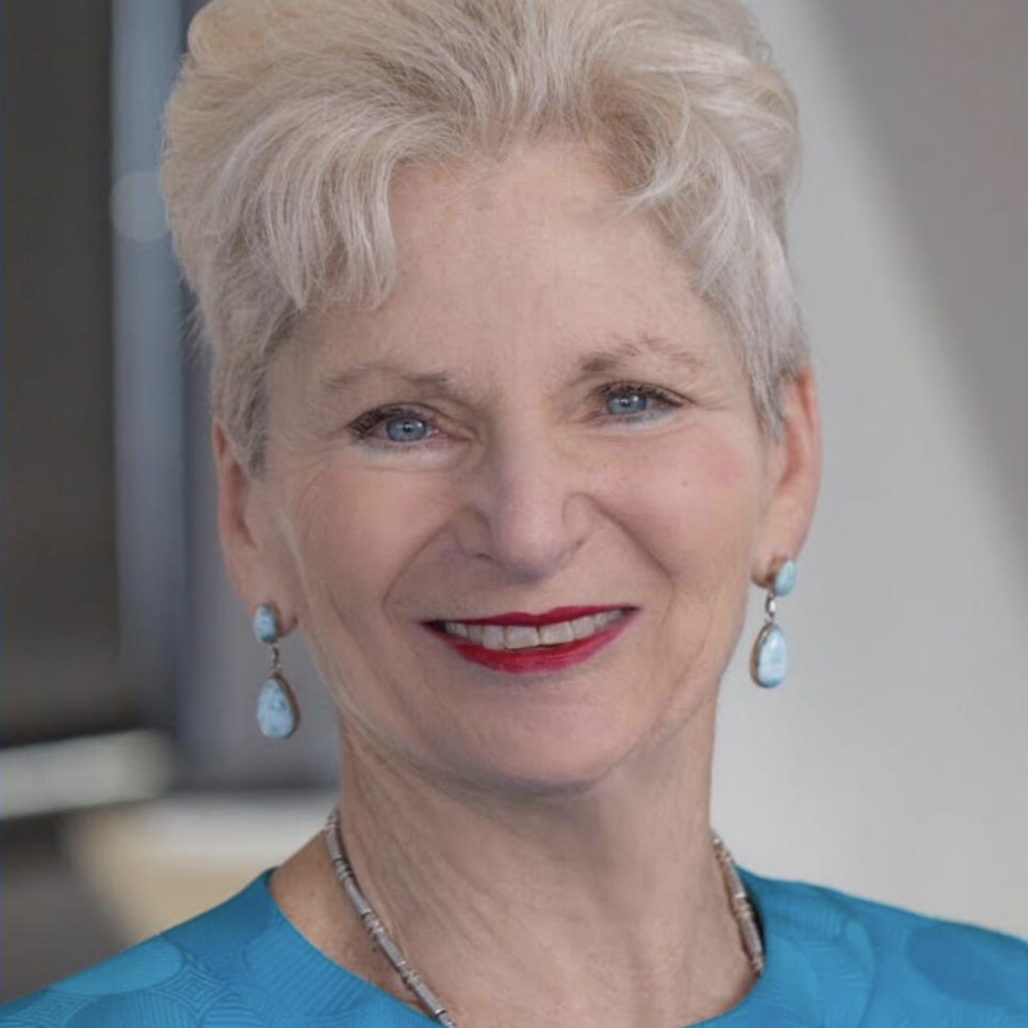
Edie Fraser has spent her life in the service of equality with a passionate vision for a better tomorrow. Having led national poverty programs and worked to advance women’s gender equality for decades, she has a precise understanding of women’s progress. Discussing her life, Fraser alternates seamlessly between lessons learned in childhood and her biggest professional challenges, detailing her storied career and how the future is developing for women in America.
![]()
NAWRB: In your opinion, what is the most important success women have had in the last 50 years?
Edie Fraser: Successes have been achieved and we celebrate them, and yes, we want parity. Studies show that it could take as long as 117 years to reach parity in the private sector. Let’s advocate for parity within every government institution, business, profession, organization, and in higher education.
We are fighting to change the face of women in politics. Yes, we have made progress, but not strong enough. Women comprise 20 percent of Congress, 21 percent of the Senate, 19 percent of the House, 24 percent of statewide offices, 25 percent of state legislatures, 20 percent of mayors in cities with populations over 30,000, and we have a long road ahead of us. The truth is that we have over 20,000 women interested in running for office as of winter 2017, and that’s at all levels. On the political front, because we know that women will have such a positive effect, we have exciting news on both sides of the aisle. Women are running for office and they want to work together on economic, entrepreneurship and family issues to make a difference. Women have also proven that they can work together for policy on many levels.
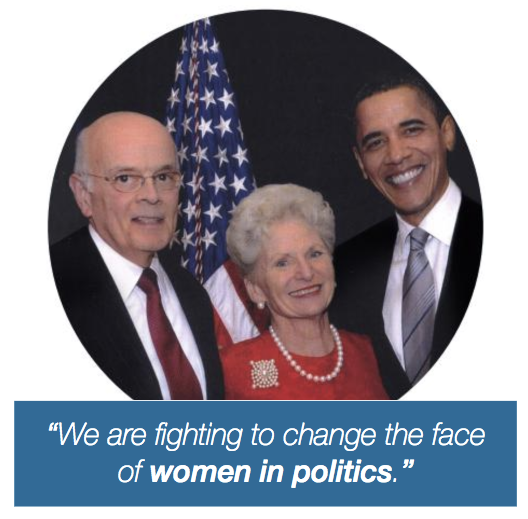 One major problem is that women of color face even more difficulty when fighting for their advancement, not only in the political arena but also within companies and institutions. It’s interesting that corporate boards are still 80 percent male; yet there is such great opportunity for gender equality in these professional settings. We can attain greater numbers for women and women of color when women are 20 percent of top business management but only three percent of top corporate leaders are women of color. Similar figures are present on corporate boards, and the situation is worse in Silicon Valley and elsewhere. The numbers should mirror the population. Every study, from EY to Catalyst, shares that companies with three or more women on the board have better financial performance.
One major problem is that women of color face even more difficulty when fighting for their advancement, not only in the political arena but also within companies and institutions. It’s interesting that corporate boards are still 80 percent male; yet there is such great opportunity for gender equality in these professional settings. We can attain greater numbers for women and women of color when women are 20 percent of top business management but only three percent of top corporate leaders are women of color. Similar figures are present on corporate boards, and the situation is worse in Silicon Valley and elsewhere. The numbers should mirror the population. Every study, from EY to Catalyst, shares that companies with three or more women on the board have better financial performance.
Many CEOs are speaking about status and supporting equity; we analyze this in every industry. Despite the 32 female CEOs on the Fortune 500, the highest proportion of female CEOs in the 63-year history of the Fortune 500, women are low in number and many choose to leave the corporate C-suite if they don’t see opportunities for upward mobility. Globally, the U.S. remains significantly behind gender equality leaders. Within the largest 150 public companies in England, women are approaching 30 percent, and in Norway, France and Sweden, women comprise 33 percent of top companies. We know we are far from our parity goal, and it’s clear that we need women of color. The sisterhood for Blacks, Hispanics and Asians needs to grow.
In the insurance industry, although we have 6.1 million women employed and are near parity at the entry level, the big disparity is women at the top. In fact, a recent study from STEMconnector®/Million Women Mentors® (MWM), Women in Insurance, discovered a 28 percent differential in salaries and earnings between men and women at the very top.
We need a movement in each sphere, from entrepreneurs to entire industries, focusing on where the jobs and opportunities are. The tech industry offers the most jobs but is the worst sector in terms of gender equality. We must make the industry attractive as almost half the women who go into technology eventually leave the field. In entrepreneurship, we know that women-owned businesses number 11.6 million strong and generate $1.7 trillion in revenue, according to the Census Bureau. We must champion women-owned business as a backbone of our economy.
Currently, 30 percent of college presidents are women; that’s a whopping increase from years past. Additionally, women comprise nearly 57 percent of college students.
Where there is parity there is equity! If you review every sphere in gender equality, we’ve made progress even though we don’t have parity, in politics, the corporate world and education. Let’s continue to move the economic needle.
Every time we say we’re making such big headway, we know from history and the process of gender equality that we can do even better across the board.
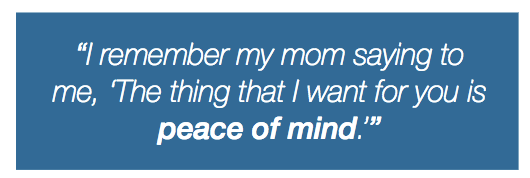 NAWRB: In what fundamental ways can parents encourage and support their daughters’ interest in STEM fields and career paths that have historically been male-dominated?
NAWRB: In what fundamental ways can parents encourage and support their daughters’ interest in STEM fields and career paths that have historically been male-dominated?
Edie Fraser: It’s critical that parents get involved, and teachers and organizations. Mentoring and counseling comes first. We need to understand the courage necessary for girls to enter and pursue STEM fields and careers, and help generate income and achievement. After we learn of a child’s goals in terms of career field and finances, it’s important to encourage parents to discuss with their children the role of career choice on the economic sustainability and wellbeing of a family.
Often, there are many in underserved communities who don’t have parental support, so we have to build a village around those children and make sure that through organizations, teachers and other institutions, every child has a counselor and a mentoring network to truly build their future. In this way, we can support them in their life dreams.
NAWRB: What is your proudest accomplishment with STEMconnector® and Million Women Mentors® (MWM)?
Edie Fraser: If you analyze the figures, up to 80 percent of all jobs are in STEM (Science, Technology, Engineering and Math) fields. The advancements that STEM has created in our everyday lives, from computers to healthcare, are astounding. We want to close the gender gap in STEM by opening the pathway for women and girls. Six million jobs are currently vacant in the U.S., with 2 million of them being in the cyber industry. We want to impact careers and jobs overall but particularly for women and girls.
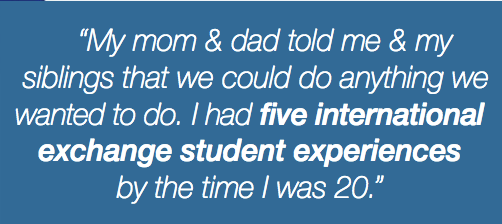 STEM jobs are where pay equity is. STEM jobs pay women 92 cents on the dollar, and in technology-related roles, 96 cents on the dollar. Women need jobs and millions are opening in cyber security, healthcare, and technical fields such as such as welding. Step up to where the jobs are!
STEM jobs are where pay equity is. STEM jobs pay women 92 cents on the dollar, and in technology-related roles, 96 cents on the dollar. Women need jobs and millions are opening in cyber security, healthcare, and technical fields such as such as welding. Step up to where the jobs are!
Million Women Mentors® (MWM) has hit 2.1 million commitments and we’re close to one million fulfillments; this means spending 20 hours a year with a woman or girl. Uplifting these women and girls in the system will have great consequence. We can make a huge difference for America, especially the underserved, and we are committed together to ensuring parity across the board. We understand the excitement of this transformation and the importance of giving everybody a chance to participate.
Homeownership, as NAWRB advocates, is incredibly important, and an achievement that can be made possible for women through gender parity. Owning a home also connects directly to giving back, as it helps tremendously to have that experience, confidence and equity when helping others make their own way.
In the future, we want to see everybody talking in “we” and not “I.” None of us do anything alone; we do it with the help of others. We may lead movements, but we do it as a team. The first goal is to get everyone thinking about what we can do together. The second is reaching gender parity in every one of the spheres mentioned. We want to see great jobs for everyone, an inclusive, respectful society, and we want bipartisanship to work. We believe that women can get this done.
NAWRB: What goals do you hope to achieve in the future?
Edie Fraser: Engagement! I pray we get more positive not negative, and continue to support solutions for this country to push forward and not fall back. I’d like to continue to give back through philanthropy. I hope I can be married to my husband for another 25 years before we die, and I want to treasure my friendships and relationships.
I think we can do it all. These are things that we hope take place. We’re in a toxic state right now in this country and we’re focusing on attacks and negativity. What we have to do, if we’re united and thinking forward, is fixate on all that can be done.
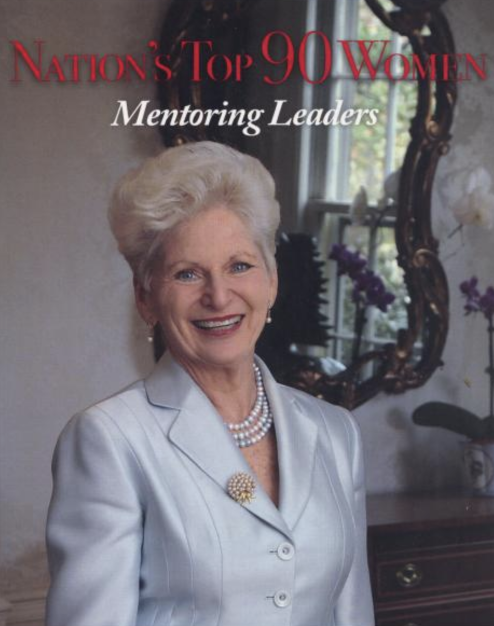 NAWRB: Who has inspired you most throughout your life?
NAWRB: Who has inspired you most throughout your life?
Edie Fraser: My mom and dad, who were entrepreneurs and terrific. They gave back tremendously to the community. My husband, just because he’s the epitome of integrity and giving in a very quiet way. President Kennedy, who is why I came to Washington. Last but not least, Maya Angelou, for what she really gave us in terms of inspiration. I will add Eleanor Roosevelt as well.
My mom and dad told me and my siblings that we could do anything we wanted to do. I had five international exchange student experiences by the time I was 20. My mom was a strong businesswoman, with my dad they were a partnership, but she was also a terrific cook and head of the Girl Scouts. My dad had a twinkle in his eye and was a great entrepreneur. They taught me valuable lessons and have always been an inspiration for me.
I remember my mom saying to me, “The thing that I want for you is peace of mind.” My dad wanted the same thing. It was support, a support system and encouragement that set the foundation for my life. They were always there when I needed them.
In those days, I don’t think young people were prepared to know what they wanted professionally. Today, young generations are much better equipped. My parents taught me the power of knowing what you can be.
My husband is just rock solid. He’s the epitome of humility and graciousness. He gives back in such a quiet way. He works on three charities now but nobody knows what he does. He’s the best person I’ve ever met in terms of a human being. He’s been supportive and stood behind me, but he’s also given me cautions.
When John F. Kennedy gave his famous speech about asking what you can do for your country I was in university. Right there and then I said I wanted to work for the Peace Corps. I spent five years on the Peace Corps staff as a national desk officer for Africa.
I did another five years during which I went to inner city ghettos, migrant camps, Appalachia, even spending 52 weeks in a different area of poverty in America trying to analyze our capacity to solve problems. This took place just before I became a business owner and it gave me an understanding of what this country was facing, as well as the world.
One out of every seven children in the U.S. doesn’t have enough to eat on any given day, we have people living out of their cars, and women are experiencing poverty levels at an alarming rate. We have to address these problems and help people reach economic stability and sustainability.
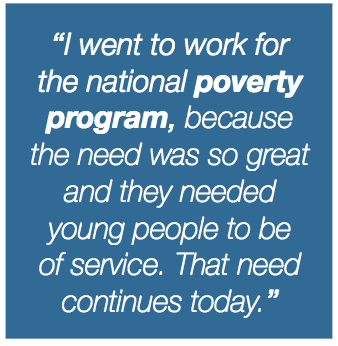 Maya Angelou has always been so important to me. I’ve always been committed to diversity and people of color. I dreamed when I was little that everybody was equal, and therefore I don’t want to see division. Maya has done and said so many inspirational things. I was lucky to spend some time with her in my life, and I’ve read all her books and interviews. I try to live by what she says. Eleanor Roosevelt is another great inspiration on my list. Just remember what she said, “The future belongs to those who believe in the beauty of their dreams.”
Maya Angelou has always been so important to me. I’ve always been committed to diversity and people of color. I dreamed when I was little that everybody was equal, and therefore I don’t want to see division. Maya has done and said so many inspirational things. I was lucky to spend some time with her in my life, and I’ve read all her books and interviews. I try to live by what she says. Eleanor Roosevelt is another great inspiration on my list. Just remember what she said, “The future belongs to those who believe in the beauty of their dreams.”
NAWRB: How can companies best support the advancement of their female employees? Why does the American workplace continue struggling to increase female representation at executive company levels?
Edie Fraser: We need insightful executives who commit to making the difference all the way up at the top and ask for accountability. Companies need more women in senior management or at the top levels. The new McKinsey report, Women in the Workplace, shows that only 20 percent of the C-suite is comprised by women, and only three percent by women of color, as referenced above. The report also analyzed what each company can do to support women’s advancement as well as the happiness quotient among women of color.
It takes top leadership in the private sector to embrace women. Companies must be accountable in their gender and diversity advancement throughout the talent process and diversity programs. There’s a new movement in gender equality: the goals are set for diversity, inclusion and a new word, engagement. Vice Presidents are now becoming “Head of Engagement” at companies. Part of this is to not only move in but also move up the workforce and make sure everyone feels fulfilled.
Companies should establish plans, overall goals, and especially have both a mentor and sponsor program. Sponsorship means we’re going to advocate for you and your upward mobility, and plan accordingly to increase your responsibility. The CEO and C-suite must set the tone and serve as role models if they truly want the best and brightest to work for them.
We are so proud to work with companies driving gender equality and diversity leadership. We also need to salute companies, entities and organizations doing the right things. What we have to keep showcasing, and that’s why STEMconnector® publishes our leaders lists, is what we have in terms of role models and change.
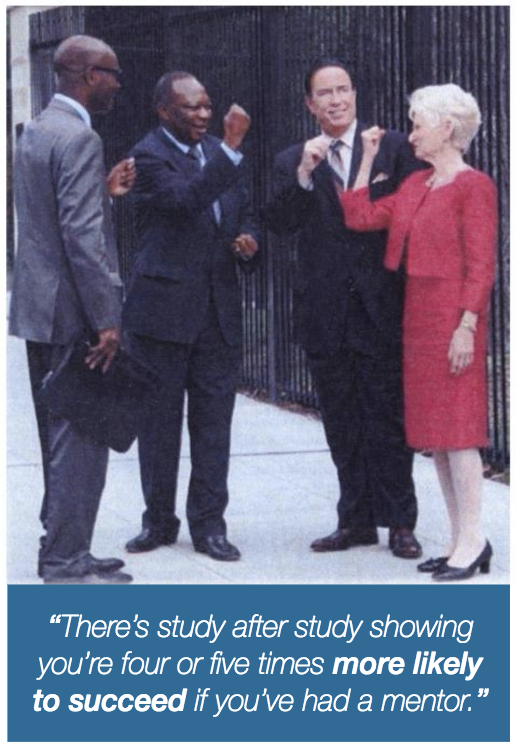 NAWRB: How did your time with the Peace Corps help shape your life? What led to you beginning your career with this organization?
NAWRB: How did your time with the Peace Corps help shape your life? What led to you beginning your career with this organization?
Edie Fraser: I’ve never met more mission-driven people whose purpose was to bring skills and love to the globe. In those days, most people who worked for the Peace Corps were presidents of their student bodies and the staff commitment was evident everywhere. There were so many passionate leaders wanting to make a difference.
Earlier in my career, I did a study on who was going into the Peace Corps compared to the poverty program, and student leaders in those days were all going into the Peace Corps. That’s one of the reasons, after Martin Luther King, Jr. and Bobby Kennedy were shot, that I went to work for the national poverty program, because the need was so great and they needed young people to be of service. That need continues today.
Today, I think we’re seeing that people who truly care about social impact are making a difference in the commitment of younger generations. Find a cause, whatever it is.
NAWRB: What is something most people don’t know about you that they would be surprised to find out?
Edie Fraser: Two things. One, that I failed. I think those that have made it have all failed, at least once. We just keep going with a persistence, desire, and hopefully having learned from our failures. I failed at one business and one nonprofit that I set up, but I succeeded in many more. I was able to sell two companies in my life. I learned that you always need outside counselors to help you through the process. I use my lawyer and my accountant to sit in with me once a month. It’s really important to learn you can fail, get up, and keep going. It’s about focusing on the next positive action steps and being persistent while leveraging relationships.
Now, in this country, everyone is coming out with personal stories. Many of us, I would purport most women, have probably been victims of sexual assault or harassment. I’ve never told anybody, but it happened to me four different times. One instance was when I was young in Washington, D.C.; he was a Congressman. Then two were bosses that I had, one boss just showed up at my apartment on a Saturday morning. We have to stand strong and resolute.
NAWRB: Why is it crucial for women to have a mentor? Are there respective benefits to being mentored by either a woman or a man?
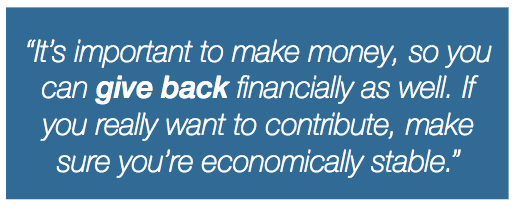 Edie Fraser: A mentor makes a difference for women in staying on a strong pathway to what they want professionally and personally. To have that kind of counseling and support is invaluable. There’s study after study showing you’re four or five times more likely to succeed if you’ve had a mentor. We see that in the corporate world because when you have a sponsor, your chance of succeeding increases by about seven times. Having a mentor or a sponsor helps women get on the success pathway.
Edie Fraser: A mentor makes a difference for women in staying on a strong pathway to what they want professionally and personally. To have that kind of counseling and support is invaluable. There’s study after study showing you’re four or five times more likely to succeed if you’ve had a mentor. We see that in the corporate world because when you have a sponsor, your chance of succeeding increases by about seven times. Having a mentor or a sponsor helps women get on the success pathway.
STEMconnector® did a study of 376,000 children and their college options, finding that 94 percent of high school girls feel they’re not getting enough mentoring. It shows you that we have such an opportunity, which is why we started Million Women Mentors® (MWM). We also need a coed call to action; we need a sisterhood and a brotherhood to get engaged.
It’s so much more helpful to have a mentor that you directly identify with in gaining a role model, but we’ll take anything we can get. The important thing is to make a difference.
NAWRB: What is the biggest personal development challenge you’ve encountered throughout your life and how did you overcome it?
Edie Fraser: It’s a challenge accepting that we’re not all as smart as we think we are. Therefore, we must identify what we need. I need to read and devour all kinds of information; I feel that’s part of learning every day. I read five newspapers and five magazines every day, maybe not thoroughly, but it is so important to always get knowledge. Never stop learning.
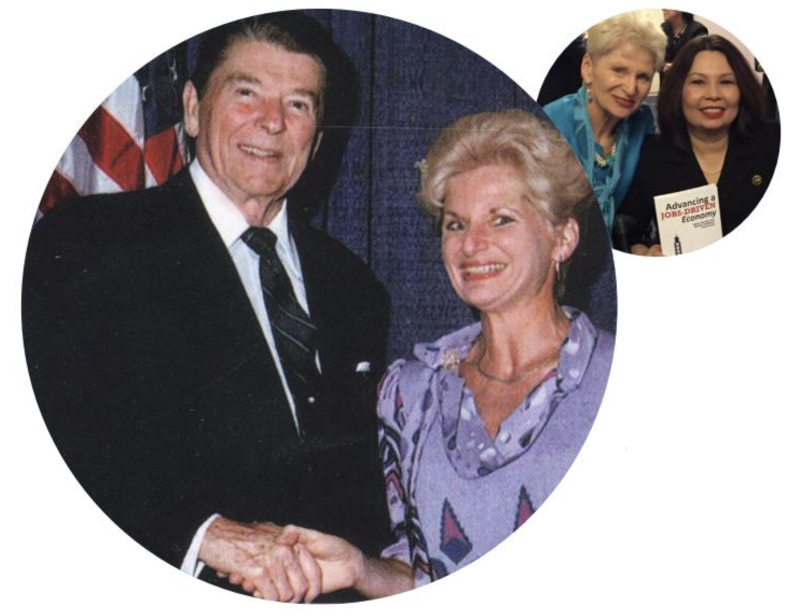 I had Epstein Barr disease for about two years. I learned how important health is because it can set us all back.
I had Epstein Barr disease for about two years. I learned how important health is because it can set us all back.
I think social media is fun. What young people have taught us is really cool. I’ve just taken to Twitter and blogging, only using it for professional services and not personally. I think it’s neat. I encourage older generations to get better at what we can do because it is the way of today and tomorrow.
NAWRB: Throughout your career you have been a pioneer, entering and succeeding at the highest levels in various positions and organizations. What motivates you, and how do you remain steadfast in your work?
Edie Fraser: I think if you’ve got a passion and goals, you just stay there. We’ve got so far to go, but we’re going to get to that mountain top and celebrate professionally and personally. I’m getting very old, but I still want to make a difference wherever I can make a contribution. I can do my part with teams that have the same mission and pursuits to make an impact.
I really took a passion to supporting women senators and those who want to make a difference, because everybody has to make a choice in how they’re going to help. I was there when Senator Debbie Stabenow set up the Women’s Senate Network in 2001. I said, “Oh, this is so important. If I can just focus on electing and supporting the current and new senators, we can make a difference.” Everybody has to make a choice of what they can do for impact.
NAWRB: How did having entrepreneurial parents influence your career outlook? What important business lessons did you learn from your parents early on?
 Edie Fraser: I always saw that you have to really follow your goals. I got the award for selling the most Girl Scouts cookies and magazines, and I was president of my high school. I think everything is about doing something and doing it well. One teacher in high school told me it was more important to be respected than liked. I struggled to understand this, but I now know that balancing the two is incredibly important.
Edie Fraser: I always saw that you have to really follow your goals. I got the award for selling the most Girl Scouts cookies and magazines, and I was president of my high school. I think everything is about doing something and doing it well. One teacher in high school told me it was more important to be respected than liked. I struggled to understand this, but I now know that balancing the two is incredibly important.
Million Women Mentors® (MWM) is doing up to 200 events a year. We just did Million Women Mentors® (MWM) Maryland last Monday and the Girl Scouts were there with the Lieutenant Governor and Secretary of Labor. They had a solar-powered cookie booth! It all comes back and we keep encouraging everyone.
NAWRB: I don’t think I’ve ever seen a picture of you when you weren’t smiling! How important is it to feel rewarded in your career? What advice would you give to women in positions that look great on paper but don’t leave them feeling rewarded at the end of the day?
Edie Fraser: You’ve got to have a passion, persistence and desire for, basically, hard work and authenticity. Regarding smiling, people like positive people. People don’t like negative people. It’s like Maya Angelou said, get rid of the naysayers. Some of us have a hard time with it, I certainly have, but you have to try to associate yourself with positive, happy people and really work on making other people happy.
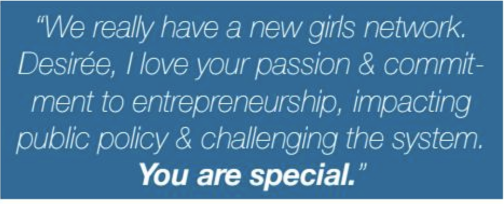 NAWRB: What is the importance and meaning of philanthropy to you? In what ways that you did not anticipate has giving back changed your life?
NAWRB: What is the importance and meaning of philanthropy to you? In what ways that you did not anticipate has giving back changed your life?
Edie Fraser: When you serve, it is heartening. I’m so appreciative of all the experiences I have had in philanthropy. I was on the board of Big Brothers Big Sisters for 27 years here in Washington, D.C., and when you mentor, it’s amazing to think about what you learned from these terrific experiences. I’ve had 200 mentees in my life, and interns upon interns. You think about what you can do, it’s more precious than anything.
It’s important to make money, so you can give back financially as well. If you really want to contribute, make sure you’re economically stable. When I wrote the book with Robyn Spizman, Do Your Giving While You Are Living, in which we picked 65 case studies of organized leaders and kicked it off in Times Square, I learned how much we can do if we ask people, “What do you want to do to give while you live?”
NAWRB: What life did you picture for yourself as a young girl, and how does your life and career compare to that vision?
Edie Fraser: I think in our day, most of us didn’t have a vision, even when we were in college, of what we wanted to be. Youths today seem much more focused on career pathways than we were. I feel grateful I had a passion and a commitment that complemented my entrepreneurial traits and enabled me to impact public policy and drive change. If you put that all together, it’s feeling a sense of real gratitude and cherishing my relationships and those who have helped me on my journey. I want the world to love one another.
Thank you for all that NAWRB does to help women and women entrepreneurs on their path to success. We are doing so much and what we need to continue doing is build together.
We really have a new girls network. Desirée, I love your passion and commitment to entrepreneurship, impacting public policy and challenging the system. You are special. Thank you for affording me this opportunity. I’m so happy we support one another in our lifetime journeys.
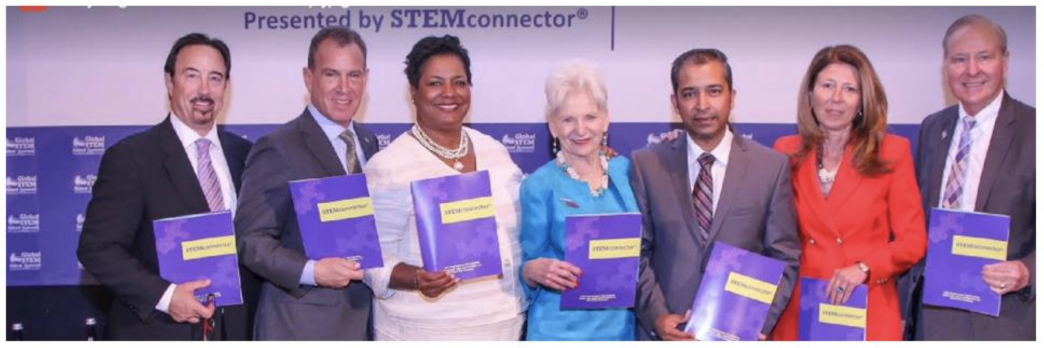

 Login
Login
